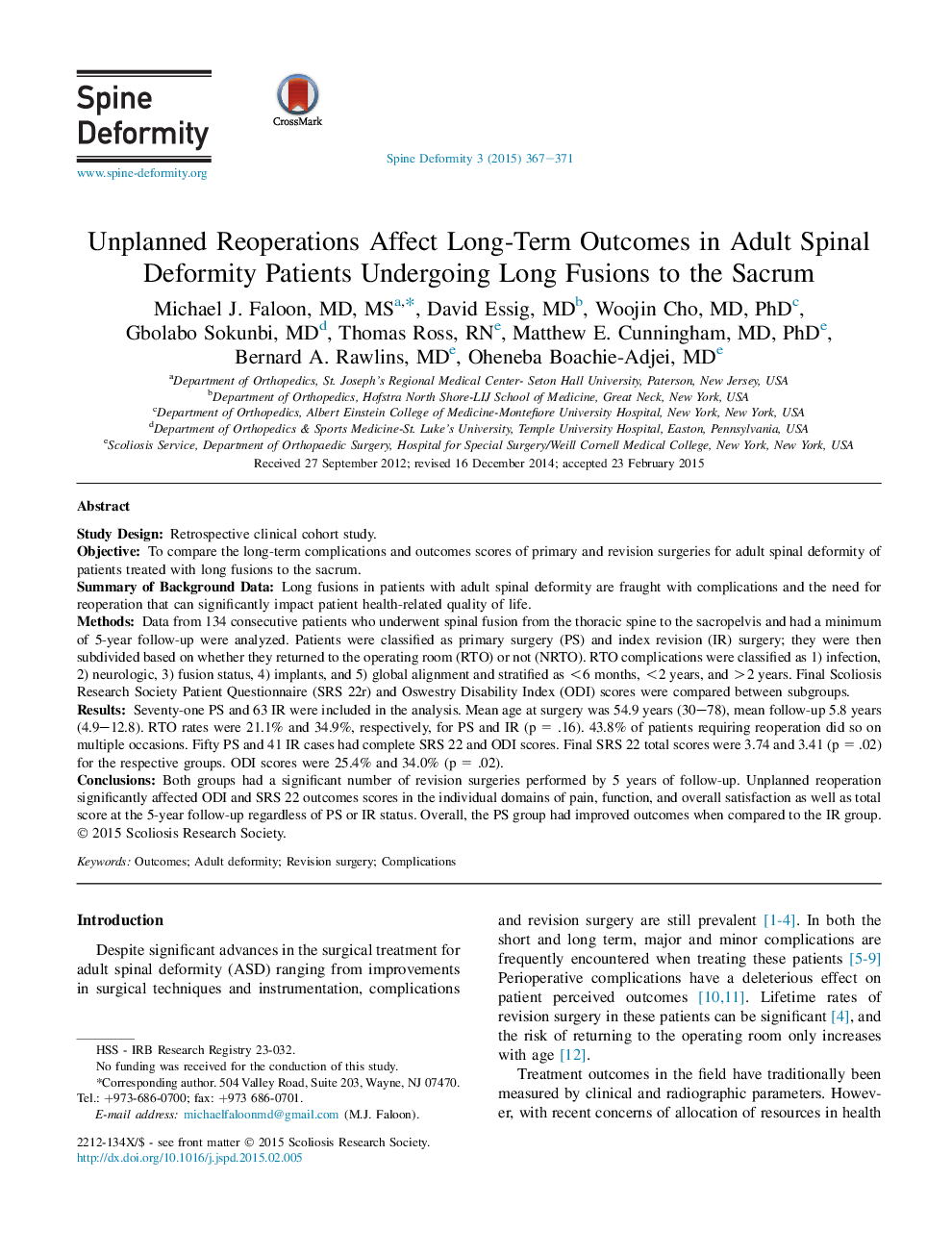| کد مقاله | کد نشریه | سال انتشار | مقاله انگلیسی | نسخه تمام متن |
|---|---|---|---|---|
| 4095220 | 1268524 | 2015 | 5 صفحه PDF | دانلود رایگان |
Study DesignRetrospective clinical cohort study.ObjectiveTo compare the long-term complications and outcomes scores of primary and revision surgeries for adult spinal deformity of patients treated with long fusions to the sacrum.Summary of Background DataLong fusions in patients with adult spinal deformity are fraught with complications and the need for reoperation that can significantly impact patient health-related quality of life.MethodsData from 134 consecutive patients who underwent spinal fusion from the thoracic spine to the sacropelvis and had a minimum of 5-year follow-up were analyzed. Patients were classified as primary surgery (PS) and index revision (IR) surgery; they were then subdivided based on whether they returned to the operating room (RTO) or not (NRTO). RTO complications were classified as 1) infection, 2) neurologic, 3) fusion status, 4) implants, and 5) global alignment and stratified as <6 months, <2 years, and >2 years. Final Scoliosis Research Society Patient Questionnaire (SRS 22r) and Oswestry Disability Index (ODI) scores were compared between subgroups.ResultsSeventy-one PS and 63 IR were included in the analysis. Mean age at surgery was 54.9 years (30–78), mean follow-up 5.8 years (4.9–12.8). RTO rates were 21.1% and 34.9%, respectively, for PS and IR (p = .16). 43.8% of patients requiring reoperation did so on multiple occasions. Fifty PS and 41 IR cases had complete SRS 22 and ODI scores. Final SRS 22 total scores were 3.74 and 3.41 (p = .02) for the respective groups. ODI scores were 25.4% and 34.0% (p = .02).ConclusionsBoth groups had a significant number of revision surgeries performed by 5 years of follow-up. Unplanned reoperation significantly affected ODI and SRS 22 outcomes scores in the individual domains of pain, function, and overall satisfaction as well as total score at the 5-year follow-up regardless of PS or IR status. Overall, the PS group had improved outcomes when compared to the IR group.
Journal: Spine Deformity - Volume 3, Issue 4, July 2015, Pages 367–371
